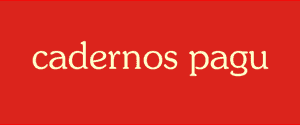Abstract
The following article analyses micro-scenes of interaction and argues that everyday life plays a critical role in the objectification of categories of difference. Categories are here understood as intervals of plausible meanings–as contents always mutually situated and constructed–within normative ideal boundaries established by routine use. An ethnographic reflection on several empirical situations, three of them discussed here, gives rise to a broader interpretation of how the recent authoritarian reaction in Brazil is based on the categorical construction of ideals regarding gender and state, as well as race, religion, family, class, sexuality and crime, thus serving as a national project. The text cannot of course be expected to discuss all of these categories in detail, with its formal objective to discuss the politics of their simultaneous production in the course of contemporary social life, that is, how the aesthetic of their emergence in everyday life impacts on the construction of the broader political scene. This text is the partial result of a broader investigation into the everyday lives of groups that are strongly marginalised in São Paulo.
Difference; Categories; State; Gender; Race; Class
